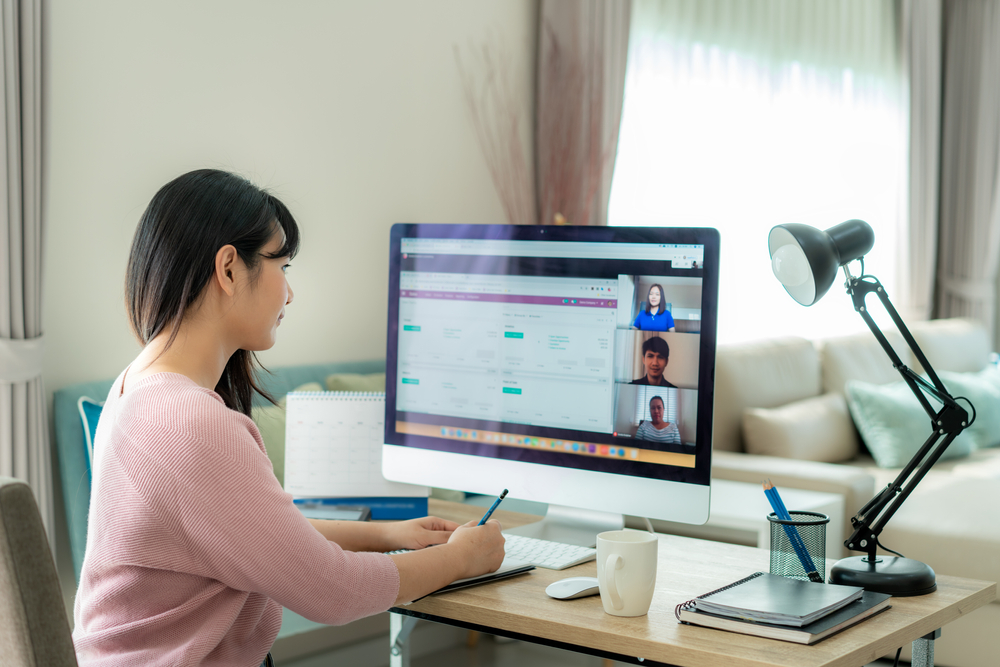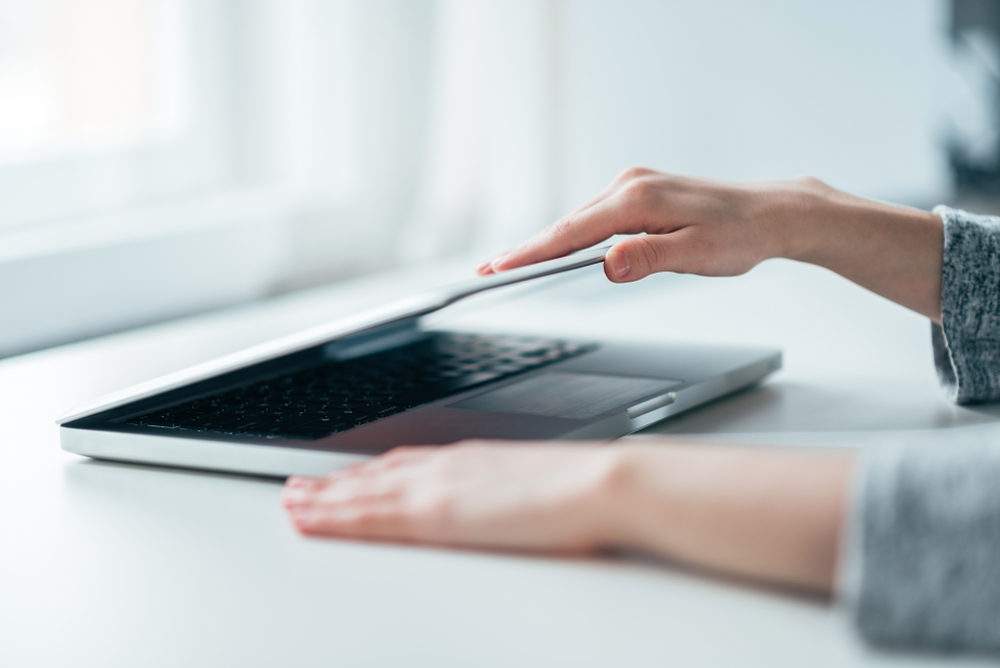Working from home is fast becoming the ‘new normal’ but it can be more stressful than being in the office.
Editor Jane Garton looks at the pros and cons and how to make the transition from office to home as smooth as can be.
The pandemic may be on the wane but many of us are still working from home (aka WFH) and it’s looking like it could become the norm. But although there are benefits such as greater flexibility, no commute and a better work/home life balance, there is no denying it can be difficult to adjust to.
It may be challenging not having colleagues to bounce ideas off or a definite structure to your day. Perhaps you’re missing the office gossip or the face-to-face meetings. Motivation as well as a tired, foggy brain and lack of focus are other common problems you may come up against.
So, if you are struggling here’s some tips to help you work efficiently and happily.
Location, location

Having somewhere where you go to work primes your brain into work mode. So, space allowing, set aside a specific, separate area in your home where you can set yourself up – ideally with a properly adjusted desk and chair, similar to your workplace, and good lighting.
Get dressed

It may be tempting to stay in your pyjamas but don’t! Getting up and dressed puts you in the right mindset to work.
Establish a routine

This will make it easier for you to focus on the day ahead. Keep your schedule as close as you can to what is was in the office – start at the same time each day and if possible, check in with colleagues. Aim to end your working day at the same time too.
Take a break

Plan meals, screen breaks and exercise slots into your schedule as you would with meetings. Taking time away from your work, especially for a full break at lunchtime, is essential.
Keep moving

The gym may still be out of bounds, but any type of exercise helps to boost endorphins – the body’s own happy hormones. So put your shoes on, go outside and enjoy that fresh air. A different perspective will also help release mental blocks and give you a fresh pair of eyes for any problematic tasks.
Stay in contact

Keep in touch with people from work and friends to avoid feeling isolated. And don’t just rely on email – make phone and video calls too via WhatsApp, Zoom, Skype or any other video platform. When you spend the day working on your own, actually calling people and having a chat can be much more stimulating and even more productive than a chain of emails.
Switch off

At the end of your working day, switch off your computer and tidy away papers and other work items. Avoid coming back to emails in the evening.
Supplement it

If your mind starts to wander when you’re away from the more structured office environment there are several herbs that can help to keep you on the ball. First comes rhodiola, an adaptogen known to help support the body and the brain as well as boost daily energy. Meanwhile ginkgo biloba has long been known to help improve mental processing, memory and attention span while the ayurvedic herb Bacopa monnnieri may help improve verbal learning and delayed recall.
Other top tips:
Open the window: a breath of fresh air provides the perfect pick-me-up.
Stretch it: stretching for two to three minutes every now and then loosens muscles, eases joints, and improves blood circulation, which increases energy and concentration.
Get minty: sprinkle two drops of peppermint oil on your handkerchief and sniff to boost your energy.
Create a list: Making daily or weekly ‘to do’ lists can help keep you focused and achieve your goals, however small.





















Add comment